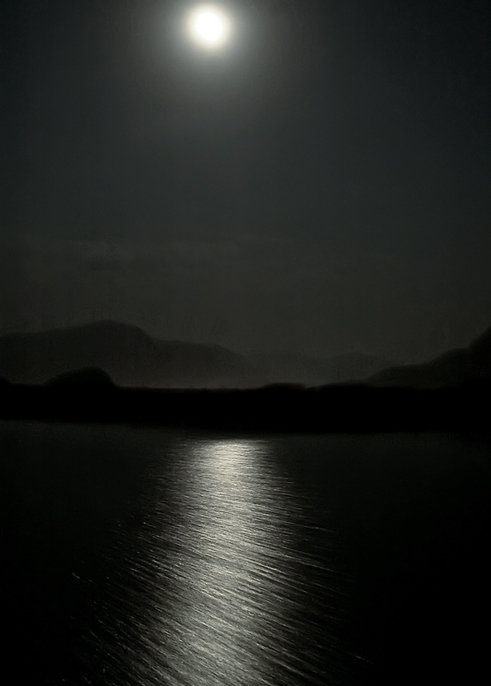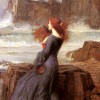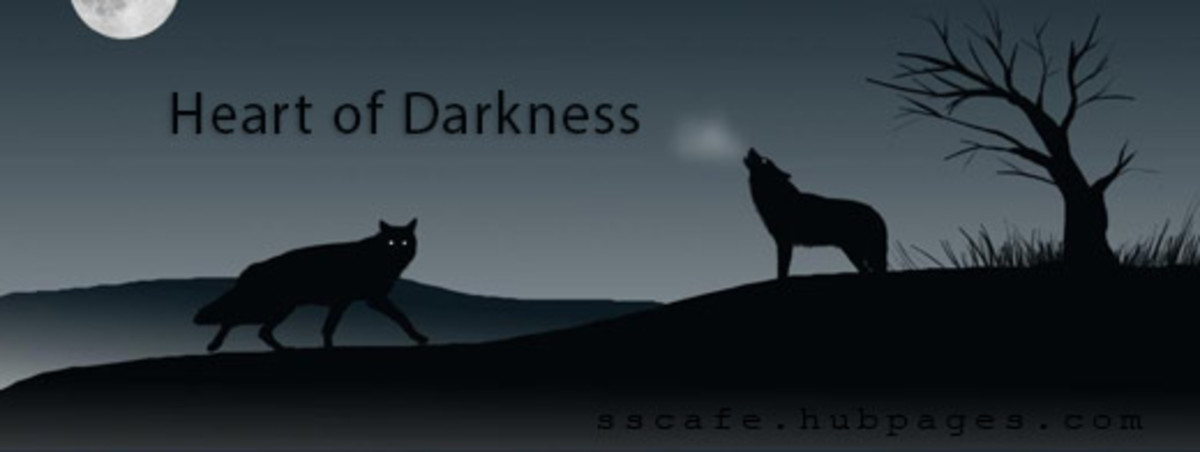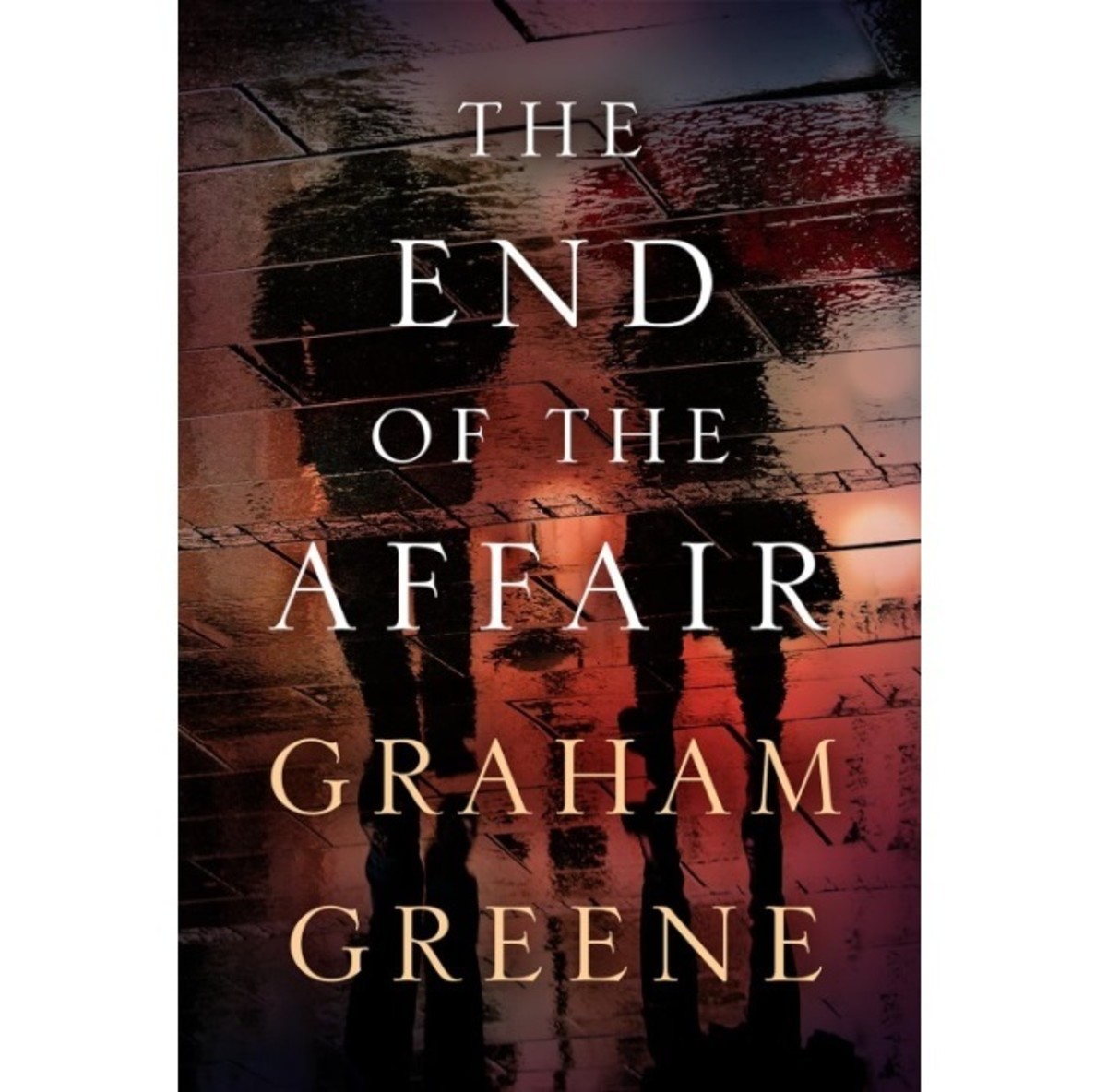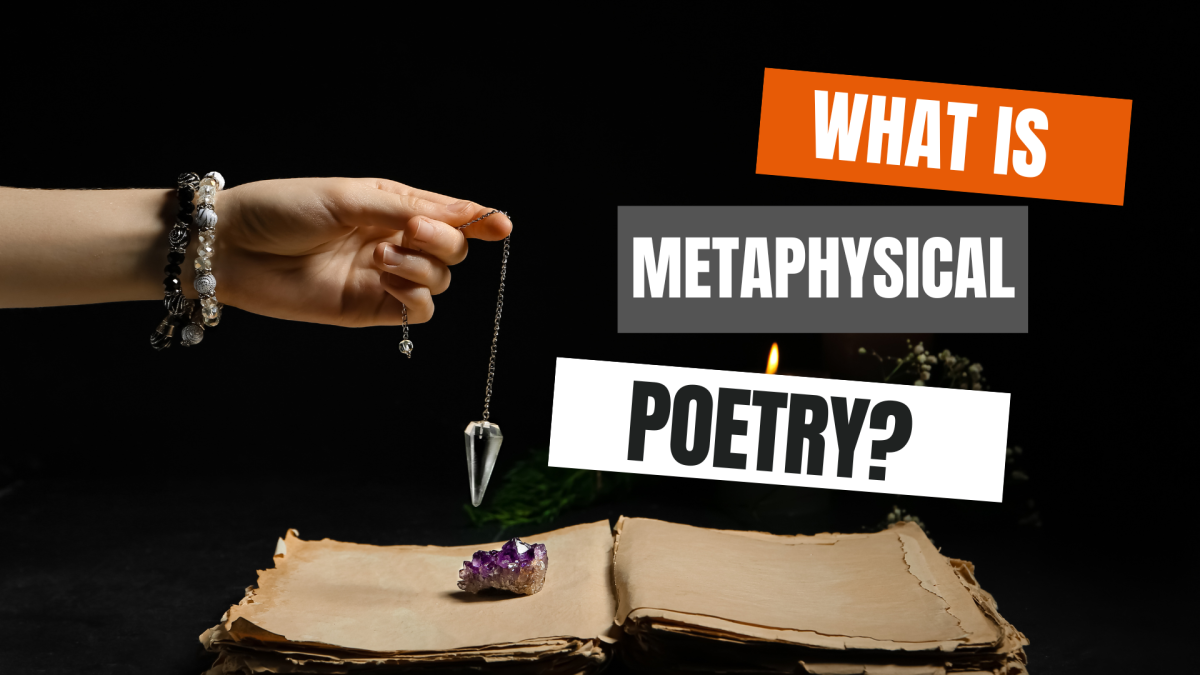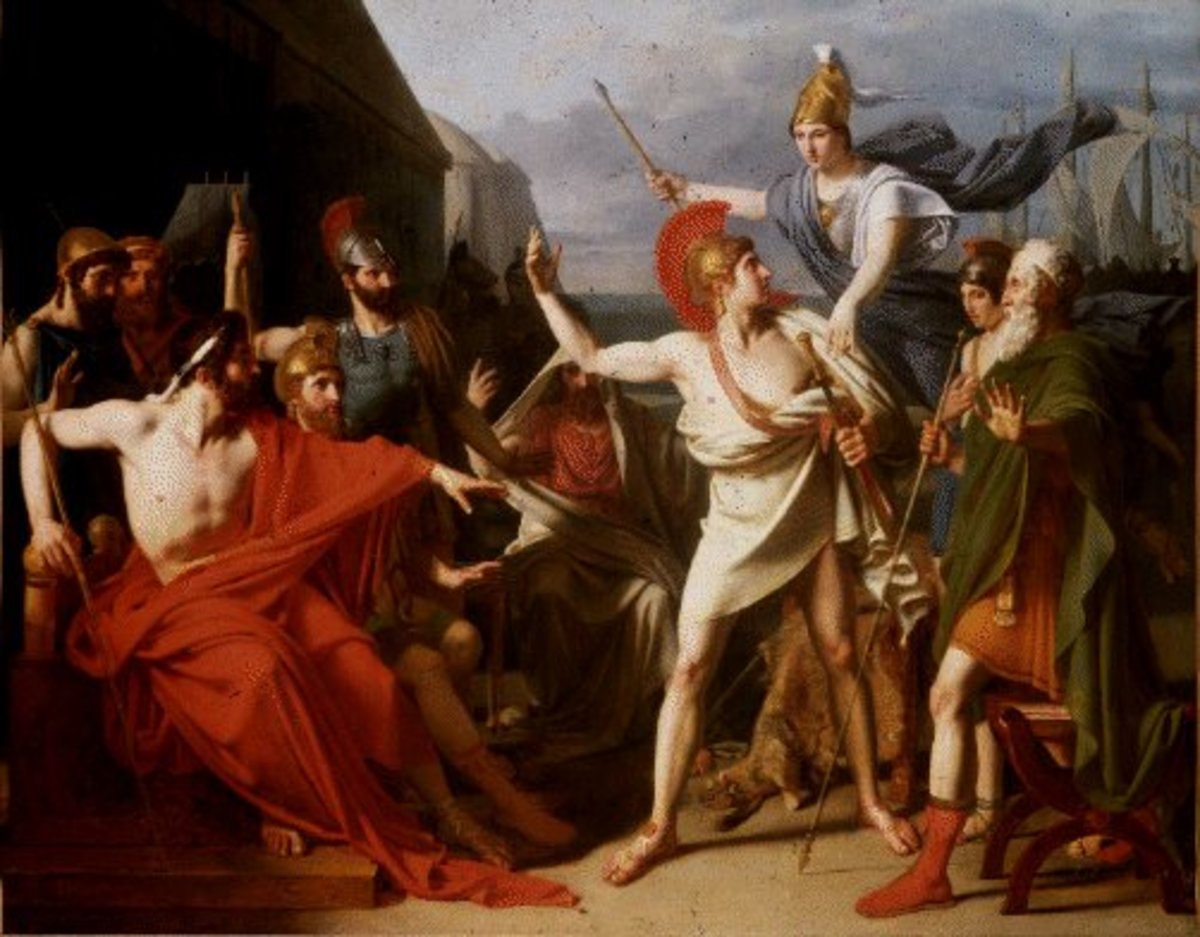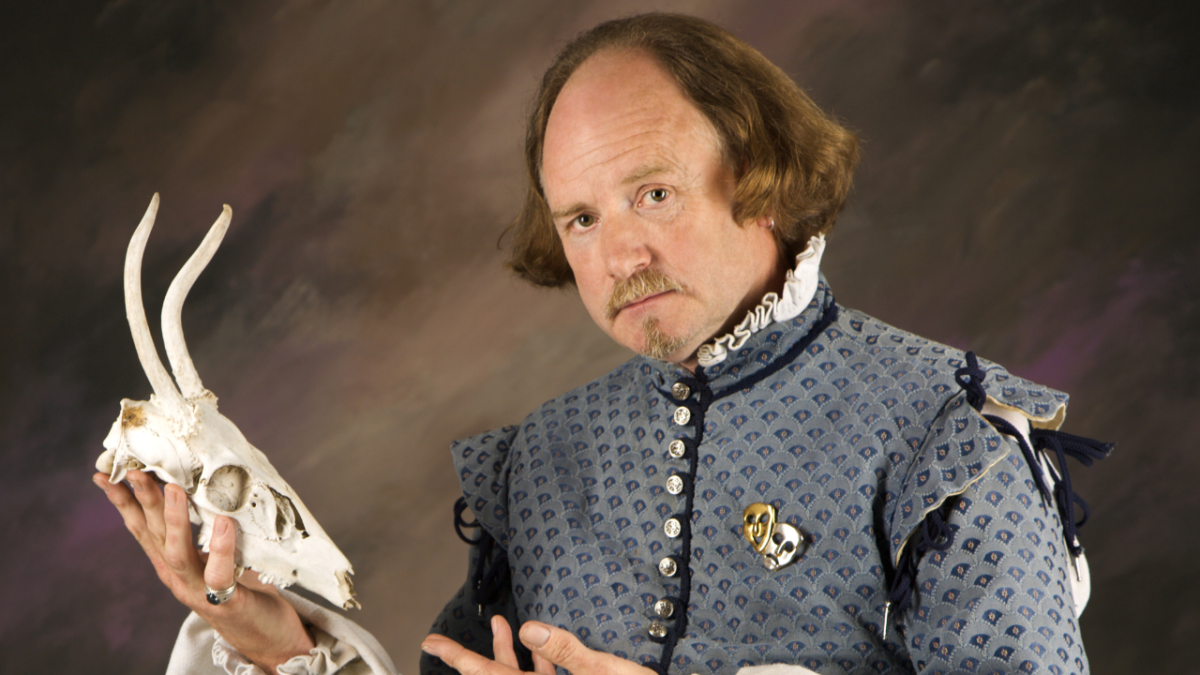"The man who laughs" by V. Hugo: a review by a lover of this romance
an introduction
I read this story, for the first time when I was fourteen. My literature teacher insisted much, saying that this was a book not to be missed, and as we were studying in class the Romanticism, she thought that it was absolutely necessary that I read Victor Hugo. I must preface that I read a lot, since I was very young, but this impressive volume inspired me a bit 'of terror ...however, after the first twenty or thirty pages, I was completely immersed in the pleasure of reading and after the first hundred pages I had tears in my eyes, because of emotion and due to the beauty of the text: I was kidnapped by this novel! Years later, in a winter afternoon, recalling the opening scene of the story, looking for a good book to pass the time, I found this one in my hands, already a bit 'yellowed, and I began to read ... I have not certainly complained this decision!
Instead of my opinions, only few are fond of this romance, the work, at its appearance, was greeted with indifference, and annoyance, even a critic of the "Times" wrote scornfully: "French indecent writing is like no other ... it is utterly and simply bestial.". For over a century, many readers of the 'Man Who Laughs " have considered as a duty to bring this enigmatic literary monument to the most varied, and ultimately consoling, gender categories: a novel of initiation, historical fiction, romance socially involved etc.. confirming, with this attitude, the discomfort and confusion that this novel caused when, once, appeared. There is also a curiosity about this romance, that I don't know previously: the visual appearance of the Joker (of Batman fame) was based on Conrad Viedt's portrayal of "The man who laughs" in the German silent film version of this book.
Perhaps, to get closer to a work so complex and deep (as well as very long: two parts with one hundred and three chapters), it is better to give up claims of classification, but merely to collect and compare the signs and indications that the author intersperses in the text, signs that, as Hugo said, demand a careful reader, one who loves to meditate on the details as well as on the big issues and ideals.
The novel is entirely built with the ancient technique of anagnorisis (in ancient Greek: ἀναγνώρισις: it is a moment in a play or other work when a character makes a critical discovery) and, in the whole story there are many examples, nay, the central episode of the novel is based upon such an incredible discovery by the main character; as can be expected of Victor Hugo, he is very wordy, either going into extreme depths of backstory or philosophical detail that may bore many readers... But, apart from technical descriptions, what I think is that everyone, while reading such a novel, must put aside the reason and the rationalism to let himself taste truly the poetry, the delicacy of feeling and the treasures kept hidden in the soul: as with all Victor Hugo's works, the mood, characters, and landscape are evocative of how the passion of love can rise above the unfathomable tragedy of mankind, even if only for a short while...
Here follows a brief summary of the history with some comments that I have marked in the margins of the text during the reading, my first impressions of a decade ago and the latest comments, after accumulating years of study.
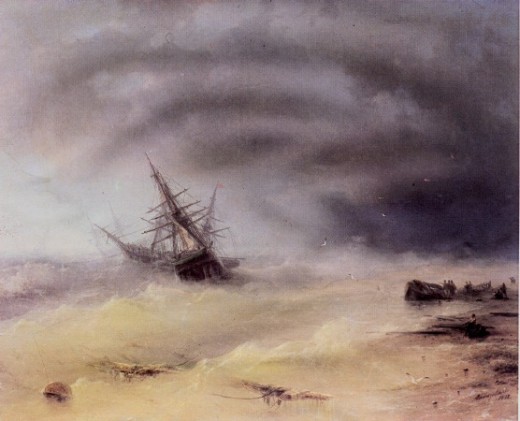
On the night of January 29, 1690, a group of people, called "comprachicos", abandons sailing in a hurry, a child, ten years old, on the English coast, near Portland. Despite the weather conditions are prohibitive, the vessel is heading to the sea: these men are fleeing from the English justice, because their horrible service includes, according to law, the death penalty. This whole first part is dominated by gloom and the chill of the wind of the stormy sea, by the descriptions, almost horrible, of these men and their absurd trade: merchants of children they are, who are capable to transform a man into a monster to be exhibited at fairs and circuses. The comprachicos, after having been tolerated for a century, fall into disfavor and are hunted both in England and in France . So these "merchants of children" decide to take potluck and embark on their ship. Almost immediately a storm, described with such realism that you can almost see, really, the ship turned upside down by giant waves, strikes the ship. The men on board, aware of their fate, before dying, decide to entrust a message in a bottle, the secret which they bear, the terrible truth that is revealed only in the half of the novel, with the most portentous recognition of the whole story.
As Hugo used to say in his imaginary, the sea is Nature personified, in a pure state. It lies, turbid and terrifying, indifferent, like a dark cave from which is heard the cry of fate and the reasons of necessity. Perhaps, because of this, the novel begins with the death at sea of the comprachicos and closes with the protagonist's death at sea, although the two deaths are very different, one in a storm and the other in a dream ...
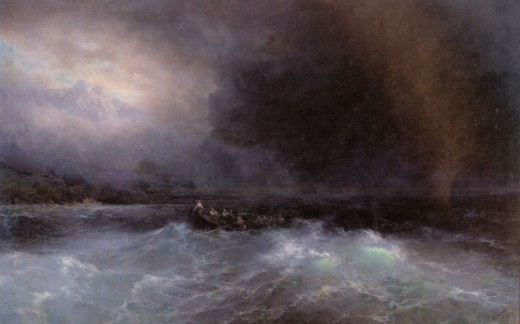
Meanwhile the child, desperate, hungry, barefoot, not even imagining where he is and without knowing anything, wanders in the storm trying to reach a wisp of smoke glimpsed only for a moment, a sort of mirage in the snowstorm. This child is not a normal one: sold by the merchants of children, having his ears stretched, his hair permanently colored, his nose flattened and his mouth made into an eternal laughing shape, disfigured to become a clown. During his desperate march, he comes across first in a gibbet, where he finds the corpse of a hanged man: when this child comes across the mummy of this decomposed hanged, Hugo approaches decidedly the grim and delirious realism of Goya, orchestrating a crescendo of horror that really has few examples in the literature of the nineteenth century. But the whole scene has also a dream character, because in Hugo's text it is said: "the child assisted to this dream": the two elements, the night and the snowstorm, blend the darkness and blinding light to form the vision of a dream. A little farther on, the child, alone and lost in silence and snow, hears the cries of a newborn baby, and approaching, he discovers a dead woman in the snow, holding in her arms a baby, still alive. He discovers an infant girl, barely alive, clutching the woman's breast, her eyes are sightless and clouded, and he understands that she is blind. A single drop of frozen milk, resembling a pearl, is on the woman's lifeless breast: the child takes the infant with him and they will never separate from each other 'till the end of the tale. Now the child is no longer alone, because in his arms he embraces this little creature; in solitude the two cross the vastness of the snowstorm and the night and, finally, here's hope: they arrive in a village, but no one here answers to his requests for help. Finally, the two arrive at the mobile home of Ursus, a small shack on wheels called Green box, with which he toured Britain. He, who houses and feeds the two children, with surly attitude but also in a very affectionate mood, is a wandering philosopher, a bit' poet and a bit 'doctor who lives with his only companion, the domesticated wolf Homo. Ursus is one of the most sensational characters of the entire story and the one I loved most: when the child enters his hut, he sees a sign hanging on the wall that says "Ursus the Philosopher" in large letters. The old man, because Ursus is already an old man, welcomed him and discovers, first of all, the horrible distortion of the face of the child and also discovers that the little girl is blind, he gives them a name, Gwynplaine and Dea (Goddess) for the girl, named so because of her otherworldly appearance and her delicate beauty.
Ursus is a symbolic, emblematic character, behind whom probably lies Victor Hugo himself, the writer and philosopher, gruff and beloved by his sons, who at the time of writing the novel, always wore an old sweater that his children called "the wolfskin of Dad". All the events of the novel are told again and again by the comments and apologies, affectionate rebukes from the old Ursus: he is so wise to know that man is really a beast, while a fierce wolf is the most lovable of creatures: "homo homini lupus" . Eventually, the old philosopher decides to take with him the two orphans, grow them and educates them himself to music and singing but also to the wisdom and philosophy, to Gwynplaine he often repeats: "Be a philosopher. The wisdom leads to invulnerability", but, about Dea, he only says: "She is the absolute beauty".
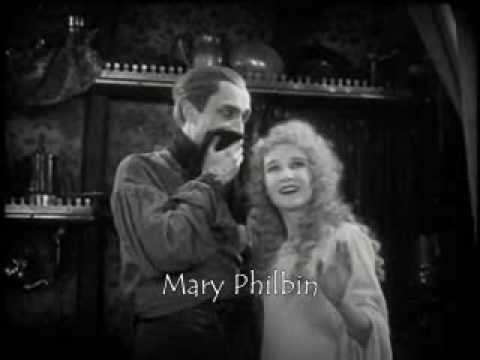
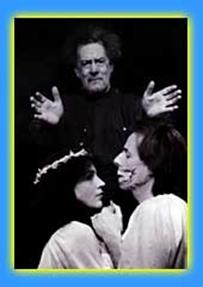
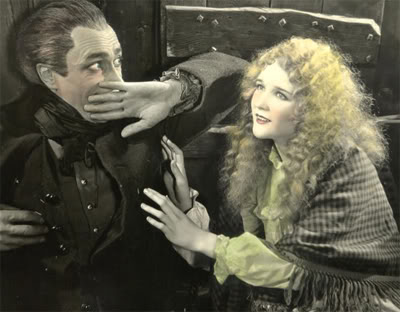
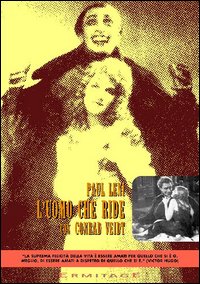
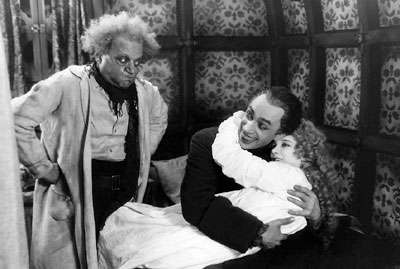
At this point, the scene moves forward 15 years. The child, found in a stormy night, has now become a man of almost 25 years whose name is Gwynplaine and the delightful girl named Dea, is sixteen. The two young grow up together, but their relationship, almost full of brotherly affection, quickly turns into an innocent and deep love, and their love is the most poignant and special idea of the whole novel. Gwynplaine is indeed a monster, a being suitable for trade shows and the stage of the Green Box, who can love him, who can see the beauty in him and have the courage to kiss him? Only Dea, unobstructed by the sight, can love the inner nature of the monster, and rather than simple love, the girl worships Gwynplaine and stands before him "like a priestess of ancient times". Ursus often tells the boy to let go this absurd love: she is beauty and he is the horror and two such different beings can not love each other ... but the text says, with beautiful words: "Gwynplaine was no longer deformed because he was loved; a rose asked in marriage a caterpillar, sensing in that caterpillar the divine butterfly: the outcast Gwynplaine had been chosen. " This leads them to a perpetual joy, ecstasy, which makes possible that two vagrants, orphans, disfigured he and she blind, be happy, as few people can say to be.
The three survive with small shows that are represented in the various villages, crossed in their wanderings. Ursus instructor and Ursus poet: the hidden heart of the story is duplicated in the form of the theatrical performance, the masterpiece of Ursus: "The defeat of Chaos". On the provisional stage of the acrobats, before an audience composed mainly of miserable, it is consumed the eternal and tragic misunderstanding of the art, a theme so dear to the Romantics: "It was more a dream that a play". This representation is also, I think the key to the whole novel: in the beginning there is only darkness, then there is a confused light in the darkness and one can see three figures, a wolf (Homo), a bear (Ursus) and a man (Gwynplaine). These three figures are fighting each other, their struggle is the battle between the primal forces of nature and man, between Chaos personified and man. The man is going to be miserably defeated, Chaos threatens to swallow again, and all the spectators attending shocked and breathless. Then a bright light appears and it is heard a song, so Dea enters, dressed in white and singing a sweet melody, addressed to the man, almost overwhelmed by Chaos. Thus the author describes: "You could see the she was blind, you could feel that she was a seer. She seems standing on the threshold of the supernatural." Then the man, yet immersed in the darkness, destroys the two beasts, the wolf and the bear falling into darkness as the man begins a beautiful love duet with the girl. At the height of their song, when the audience is completely prey to wonder, here's the twist: the light dazzles the man's face and "it was seen the monster blooming from the darkness", and the effect was shattering. Nothing is more unexpected like such an epilogue, the supernatural creature and monster with a tragic mask, together, singing a love song. The people laugh and the show has increasing fortune and success, everyone wanted to see Gwynplaine and laugh, "it was a smile so irresistible that at times seemed insane", their fame grows, reaching the salons of the nobility. The addition to his crew increases the income of Ursus, due to the angelic look and voice of the blind girl, Dea, and the uproarious “laughter” of the boy Gwynplain. Ursus decides to increase it further by taking his show to London. Some wealth begins to build, but their fortunes soon are threatened by a whirlwind of changes.
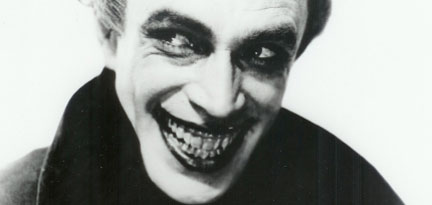

During one of these plays in London, the Duchess Josiane, kinky sister of Queen Anne, fell in love with Gwynplaine, while witnessing one of the performances of "The defeat of Chaos." After she sends to him the following message: "You are horrible and I'm beautiful. You're a comedian and I am a duchess. I am the first and you're the last. I want you. I love you. Come." Gwynplaine is desperate: on one side there is the pure and chaste love of Dea, and on the other, the imperious call of the Duchess and her passionate love, in the middle himself who is a prey to the most disturbing thoughts. This is normal and this is a contrast strongly desired by the author: as Dea is often represented as ethereal, almost a divine figure or a dream, but not belonging to the world of matter, on the contrary Josiane is the physical beauty and the beauty of the shape. Many commentators have compared her character to the figure of Aphrodite or to one of those scenes of orgies of antiquity "she would have gladly shown herself to a satyr ..." and it is said about her: "this woman had in herself the horror and the grace. Nothing is more tragic". Several times in the novel, she is presented as "the seduction of flesh par excellence" and the pure expression of erotic desire. Eventually, however, the chaste love of Gwynplaine for Dea prevails and he burns the letter received by Josiane, remaining faithful to the ideal, giving up what he basically does not want because they already possesse "the perfect happiness". But this is only the first of several, subsequent revelations and surprises that will distort forever the lives of all the characters involved.
One morning, the life of the small group is upset, forever. The arrival of the "wapentake", a senior official of Justice, which leads Gwynplaine in a prison, throws in discomfort Ursus and Dea. The whole scene of the arrest has the features of a distorted reality (orders given with mute gestures, without any justification, a sense of paralysis and helplessness); the prison in Southwark, where Gwynplaine is led, and the description of this prison, is a model of unconscious objectivity: the corridors, which get narrower and deeper down, are defined as "guts" and "entrails" and, in the dark, the ceilings drip and the doors open and close by themselves. There, in the center of this architecture, suitable for a nightmare, he meets- in the center of a labyrinth there is always a monster to deal with- his identity, the terrifying form of its double...
Now, everything seems lost, someone has denounced them, who dared too much in going to London to take potluck, some must have denounced Gwynplaine, and now he is being conducted to the prison where he will be tortured and killed: these the thoughts of Ursus, but Dea is completely lost, almost destroyed by her grief at having lost so her only reason to live, "her sun and her heart."
In fact the young is carried in a secret prison, where will be revelated to him the most shocking and unexpected revelations: the sheriff, making him sit, addresses him thus: "I have before me Lord Fermain Clancharlie, Baron of Hunkerville and Clancharlie, Marquis of Corleone in Sicily, that of England." Gwynplaine does not understand and, once again, return the metaphors of dream and vision: he is brought in a state of semi-unconsciousness in the presence of a tortured to death, named Hardquanonne, who recognizes him as the child, 23 years before, that he had permanently scarred. Faced with Gwynplaine, the villain immediately recognizes him and tells him at the moment of recognition: "I have sworn to keep the secret and I kept my promise more than I could ... now the silence has become unnecessary. Good. This is the reason I talk . Yes, he is really him. We did him: the king with his will and I with my art" . Then, looking at Gwynplaine, he says savagely: "Now laugh forever!" and laughing himself, exhausted by torture, dies. Shortly after, it is read to Gwynplaine a scroll, written by the men who had abandoned him so long ago, in which it is revealed that he is the only legitimate child of Lord Linnaeus Clancharlie, that of England. This latter, remained loyal to the oath to the republic established by Cromwell, had voluntarily exiled in Switzerland and died here in 1682. Immediately after, the then King James II had made to kidnap the only legitimate son, Fermain, and had sold him to a gang of comprachicos, with the order to render him unrecognizable. But the sea had brought the truth to light, making re-emerge from the depths, the same bottle that, many years ago, the comprachicos had entrusted to the waves during the storm that killed them. This bottle is brought to the authorities, who eventually found the lost Lord.
One can well understand the terrible state of mind in which Gwynplaine is hurled, as Hugo says so in a perfectly allegorical style: "Sometimes Fate gives us to drink a glass of madness. A hand comes out of the cloud, and suddenly offers us a dark cup containing an unknown form of intoxication". A choice must be taken by Gwynplaine: or is the Man who laughs who is dreaming of being Lord Fermain Clancharlie or Lord Fermain Clancharlie has dreamed of being the Man who laughs...what is the truth?
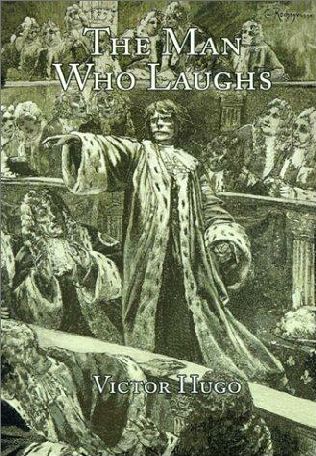
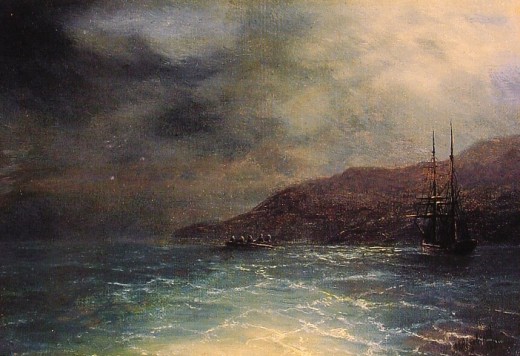
After having learned the whole truth, Gwynplaine regains his rightful peerage, becoming Lord Fermain Clancharlie and also the selected groom of the Duchess Josiane. Taken on by the size of the event, Gwynplaine faints and collapses. When he wakes up, he is in a magnificent building and is now a Lord in all respects, with servants, carriages and beautiful clothes, but his happiness is gone and what may seem like a wonderful dream, for him is just a horrible nightmare, of which fails to understand the meaning. When have seen how he considered his life with Dea and Ursus as a dream of joy and emotional transport, and so we can easily understand his acute pain, his bewilderment and how greatly he desires to abandon all this luxury to return to the simple and joyous life in the Green Box.
The following day, he is conducted from his palace, Corleone Lodge, to the House of Lords for the official investiture: this is a part of the novel that many have judged as political or vaguely populist, but I, following other views, don't agree with them all. On the contrary, he simply discover that the so called "nobles" have the same defects and vulgar passions
as that of the commoners, they are not worthy of their high positions and the respect they enjoy, because there is no one among them who can match the intelligence of Ursus the philosopher, or even know the meaning of the word "justice". However he, in joy, and, again as if in a dream, realizes that he is really a Lord, he himself, and that he can change the minds and hearts of his peers and then he address to them a romantic speech, behind which he hides his own tragedy, because he says: "I'm just a symbol!". The nobles, however, laugh loudly at him, not even leaving him the time to finish talking, but they laugh as he recites his solitary monologue. "I am the scary Man who laughs. For what he laughs? You. Myself. Everything. I laugh, which means: I cry ... this laughter expresses the desolation of the universe .... the thunder that is above your head is my laughter".
The monster has appeared on the scene and has excited only the customary wild laughter. The dream is finally over, the monster and the Lord are now the same person and no mask can erase the horror of his existence, now taken on the scene of the world. His destiny is absolutely tragic, because, in all stories, the hero at the end of the story can take off the mask and return home. Not him, the mask on his face can not be torn away, the mask is his face and what is his home is, for him, a prison.
Prey to a dark despair and feeling completely foreign to the world of nobility, he decides to return to Ursus and Dea without knowing that the two, with Homo, have been driven from England and are about to sail to the continent. Not finding them, the young man wanders in the streets of London until he meets again the wolf, Homo, as if the wolf had felt his pain and his desire to return home, to the only home he had ever known. Homo leads Gwynplaine to the ship, that is about to depart.
Without being seen by his family, Dea and Ursus, he assists at a heartbreaking conversation between the two, the young girl on the verge of death because of despair and fever and the poet Ursus, won by such a terrible fate: they believe that their beloved Gwynplaine is surely dead.
Dea wishes to die, because without him, her life is without any sense: "Gwynplaine is gone. Now I'm really blind. I did not know the night: the night is the absence".
Then, suddenly, in the delirium caused by the fever, she rises from her couch and starts singing the verses, so many times sung, during their theatrical performances, addressed to Gwynplaine. So he does not resist much longer, and coming out of the shadows, responds to her song: here the poem of Ursus has left the stage and is represented for the last time on the stage of life. Their happiness is too great, too perfect, their joy touches the stars with its grandeur: this kills the frail Dea, her heart is destroyed by such a violent ecstasy to feel again her most beloved one at her side, she said: "It's strange, previously I wished to die and I lived, now I wish to live and I'm dying". In the end, the little Dea go away, in the place from which she had come: "a deep flash crossed her eyes and she smiled ineffably. Her voice sounded very much alive:" Light "called" I see "and died."
Gwynplaine, unseen by anyone, then go to the ship's rail, calling the name of the beloved "it seemed that he saw something. He had a light in his eyes, as the reverberation of a soul, seen in the distance." He sees the highest point of the starless sky, he sees her and he simply nods and follows her into the abyss: with simplicity, almost silently, the man who laughs saying: "I come, Dea, I am here!" and vanishes into the darkness of the nocturnal sea.
"When Ursus recovered his senses, he saw Gwynplaine no more, but he saw, next to the ship's edge, Homo howling in the darkness, watching the sea."
